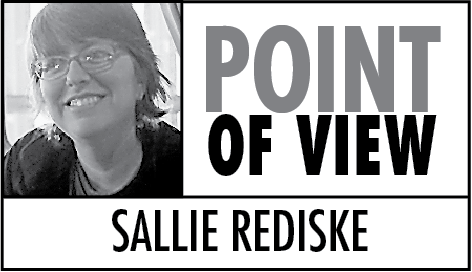Over the years, I have been asked why Homer Physical Therapy supports Homer Council on the Arts. Most people assume it’s due to a personal interest in the arts — a hobby or hidden talent — but Homer Physical Therapy’s support of HCOA comes down to one word: inclusion.
The arts are the great unifier. They are the ultimate way to be included in something bigger than oneself. Regardless of one’s health status, cognitive or motor skill level, age, or socioeconomic status, the arts provide opportunity for observation, expression, participation, connection and purpose.
From the youngest and tiniest, hearing the spoken word of rhyming verse or a soft guitar melody, to those at the end of a long life hearing songs of prayer that remind them of their youth and open their minds to words believed long forgotten, to the teen who connects with the blues guitarist that shares his own struggles of self-identity and sense of worth, to the most joyous display of dance by one dependent upon an electrical wheelchair as mallet-wielding marimba players produce irresistible rhythms: we all connect with the arts in some way.
As my practice developed into one that focuses on the treatment of chronic pain, it became increasingly apparent that many clients struggle to feel connected or have a sense of purpose due to limitations imposed on them by their pain experience. Often, they are challenged to find ways to express frustration and even grief over pain that has seemingly defined their lives. They feel isolated from family, friends and co-workers due to inability to keep up or participate in relatively active pursuits.
Looking for opportunities for physically limited clients to move in ways that did not exacerbate pain and simultaneously addressed some of the sense of isolation, I began suggesting they stop by the HCOA gallery. For some, getting from a vehicle, into the building, walking and standing in the calm, serene environment was a test of will and fortitude in the face of the pain they experience.
For others, I recommended volunteering at HCOA as a way to get out of the house, move a bit more, and make human contact in a manner that let them set the speed, duration and frequency consistent with the goals we were working on.
To others, I recommended joining Creative Communities programs at HCOA which prompted participation in something meaningful both at home and in a group setting, while enabling self-determination of level of participation without judgment or undue pressure from others. Ventures out to larger performances, like Pink Martini, were carefully orchestrated to include physical pacing and physical problem-solving surrounding getting dressed, transporting to the show, walking up the stairs or ramp, prolonged sitting, and coping with the challenges of moving within a crowd.
HCOA has been working to reach a point where full development and implementation of the CArt program can occur. The CArt program will bring art directly into the homes of home-bound individuals and offer another means of inclusion through the arts.
HCOA’s gallery provides an opportunity for emerging and mid-career visual and performing artists to share their passions with our community. Programming runs the gamut from ArtQuest, TheatreShakes, HomerArts Camp for young people to large scale community-based productions like Stepping Out, The ’60s Show, Nutcracker Faire, and the annual youth performing arts extravaganza, Jubilee. “Insightful Body Moves” is a current offering at HCOA thanks to a grant from the Alaska Mental Health Trust Authority. This unique movement exploration opportunity specifically meets the needs of those experiencing the effects of Parkinson’s, stroke, Multiple Sclerosis, tremor, and traumatic brain injury. New arts opportunities are potentially on the horizon with HCOA’s collaboration with the Pratt Museum over the possible development of the Woodard Creek Arts and Cultural Complex.
HCOA’s mission statement is “Providing opportunities for all people in our community to experience and participate in the arts.” It is HCOA’s commitment to inclusion that drives my support of this organization.
Sallie Rediske, a physical therapist and women’s health certified specialist, has been the managing member of Homer Physical Therapy since 2003. She has been a committed supporter of Homer Council on the Arts since 2006 and recently joined the board of directors.


